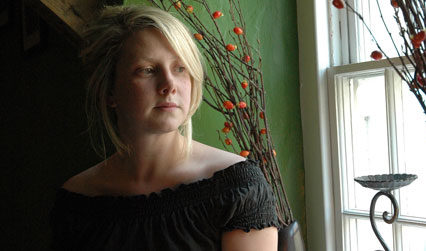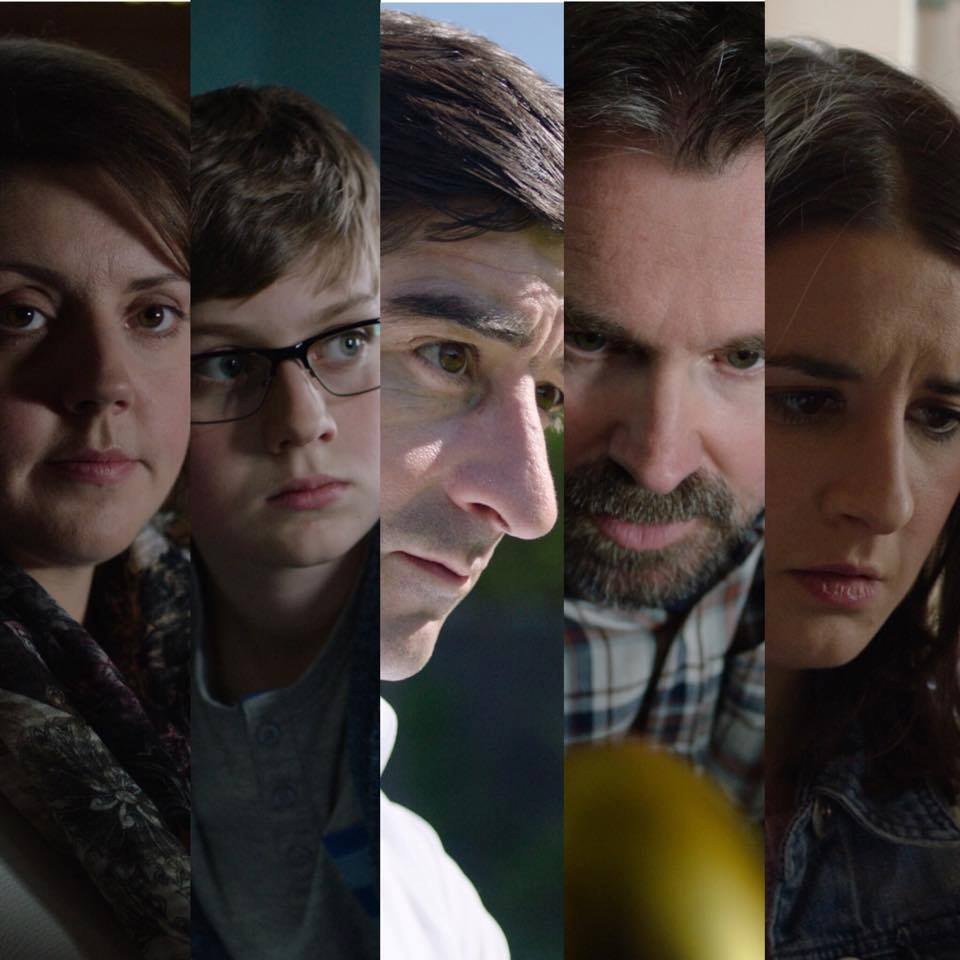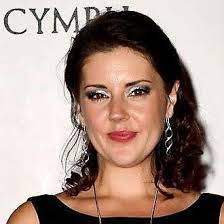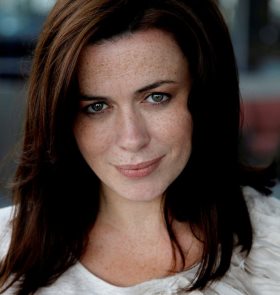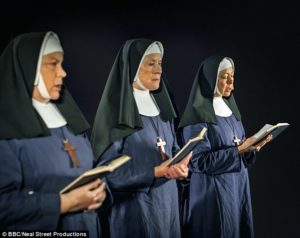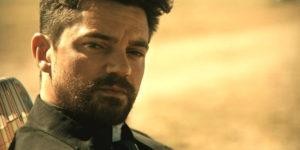 (4 / 5)
(4 / 5)
Last Sunday evening, I spent a good ten minutes with my hand firmly placed over my mouth. In the final episode of S4C drama series Parch, there was such an unexpected twist that I simply hadn’t seen coming. In my own words, ‘Well, that was a bombshell and a half’. To think that this is it, that we will no longer be following the crazy and chaotic life of the Reverend Myfanwy Elfed, is more than a little sad. Yet writer and creator Fflur Dafydd has reached the conclusion that this is a good time to say farewell to this most lovable of protagonists. It’s a little frustrating. Carys Eleri has brought such warmth and wit to her character that it has always been a pleasure to share in her company of a Sunday evening. But if she must go, then she has gone in the most beautifully tragic of ways. It felt like Dafydd always knew how this series was going to end. It made the final scenes no less surprising though. And for someone who has journeyed with Myfanwy through all three series, the emotional impact of this final section certainly hit hard.
It is only retrospectively looking back at the narrative arc of the main character that you begin to see the full artistic vision of Fflur Dafydd for Parch. As such, although gutted that this is the end of the road, I applaud her for having the conviction to draw a natural line in the sand and stick to it. So many TV drama series’ these days have a tendency to drag on a bit too long, remaining on our screens on the basis of their initial commercial success. What would have been the right time to stop is made into a springboard in an attempt to give fans more of what they love. Yet for so many it is like carrying on after reaching the edge of a cliff. Few fly. Many fall. As a result, I’m rather glad that Dafydd has refused to bow to the desires of people like me who want to see Parch continue. Instead, it will remain an ever-affectionate drama in my mind rather than a hoped-for return to a glorious past. Not that the series has to end due to Myfanwy’s absence. It is testament to the strength of Fflur Dafydd’s writing that, over the course of these three series, the focus has been as much on the other characters as the cleric of the title. As such, although initially a contemporary representation of a female priest within the Church in Wales, the series has also seen a broader focus on the trials and tribulations of the Elfed family and those around them. We have been involved as much with Gwenlli (Non Haf) and her struggles with her sexuality, for example, as we have been with Myfanwy and her faith. This final series, in particular, has been such an enjoyable watch in part due to Dafydd’s ability to hold the various storylines onscreen together. She has woven romance, mystery, fantasy, and family drama together so brilliantly that, in the end, it has become an ensemble piece. But, ultimately, it would be odd to continue in her absence. Even if she were to be like the ghostly visions that have accompanied her throughout the series’, somehow it wouldn’t be the same. In the end, Fflur Dafydd has made the right decision to bring Parch to a close.
Parch is another example of the high quality television drama that is currently being produced in Wales. As I’ve said recently, I think this is something a golden age for Welsh television drama. Having watched it alongside Keeping Faith, I can honestly say that Parch ranks just as highly in my view. It may not have won the plaudits that Keeping Faith has, but it has shown a quiet strength, epitomised by Carys Eleri’s performance. Whilst Eve Myles showcased her bold and brash physicality in Keeping Faith, Eleri has brought a humorous vigour and subtle power to her character in Parch. In doing so, she leaves behind an indelible mark of a veracious female lead who will be sorely missed.
So thank you, Fflur Dafydd. You may have left me in tears at the end, but the past three series have been a joy to watch. Parch will be missed.

